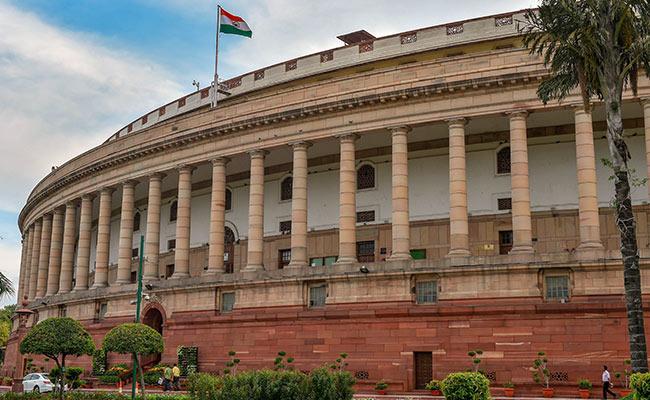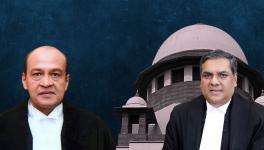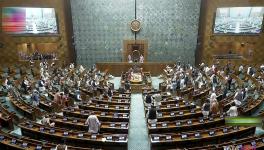Controversial Bills in the Monsoon Session

As the Monsoon Session of the Parliament progresses, there are 68 Bills pending in Parliament. Twenty-five of these have been listed for consideration and passage, and three for withdrawal. Eighteen new Bills have been listed for introduction, consideration, and passage. However, there are several Bills that have generated controversy for their content, and what they seek to achieve.
The Fugitive Economic Offenders Bill, 2018
This Bill provides for a person to be declared a Fugitive Economic Offender (FEO) if the person has a warrant issued against them for any of the specified offences involving a sum greater than Rs. 100 crore and has left the country to avoid prosecution.
The procedure laid down for declaring a person as an FEO requires an application to be filed before a Special Court under the Prevention of Money Laundering Act which should contain details of the offence as well as the last known whereabouts of the accused. The Special Court will then issue a notice following which, the person must appear within six weeks from the issuing date. The proceedings may be terminated if the person appears within the deadline. The Bill also empowers the authorities to attach the accused's property while the application is pending before the Special Court.
In the course of an investigation, the Bill does not provide for the authorities to require a search warrant or even for witnesses to be present during such a search. This is a departure from the Code of Criminal Procedure (CrPC) which contains such provisions to prevent evidence from being planted. Another problem is that the CrPC provides for the expiry of two years for a person to be proclaimed an absconder, this does not exist within the present Bill.
Once a person is declared a FEO, then the government can confiscate the person's property. The confiscated property will also be deemed free of any rights or claims. The FEO, along with their associates, will also be barred from filing or defending any civil suits. This provision could attract Article 21, through which the right to life and personal liberty also includes the right to access justice. This provision is also problematic as it does not specify whether the FEO's debts to unsecured creditors will be cleared through the sale of the confiscated property.
Read More: Govt Admits 36 Big Scamsters Have Fled India
The Right of Children to Free and Compulsory Education (Second Amendment) Bill, 2017
The Right to Education Act, 2009 bars the detention of children until they complete their elementary education which is class 8. The Bill, on the other hand, provides for exams to be conducted at class 5 and class 8 at the end of the academic year. Students who fail the exams will be given an opportunity to try again, failing a second time would result in the child being detained in that class for a year.
There are two differing arguments regarding this amendment. One is that a no-detention policy reduces the incentive for students to excel and approach their studies seriously. The other argument is that detaining children will lead to a rise in school drop-outs since the systemic reasons for poor performance are not being addressed such as the quality of instruction received.
There are also issues regarding jurisdiction as education falls within List III of Schedule VII (Concurrent List). Some states have placed different demands regarding the provisions dealing with assessment and detention. It is also unclear who will conduct the examination, whether it will be the school, the state or the union government.
Read More: As 2017 Ends, India is One Step Closer to Pushing Education Out of Reach for the Many
The Prevention of Corruption (Amendment) Bill, 2013
The Prevention of Corruption Act places the act of giving a bribe to a public servant under the offence of abetment. The Bill, however, differentiates the circumstances around giving a bribe to a public servant, whether it has been done by an individual or a commercial organisation. The problem here is that not all persons who give bribes willingly do so. In some circumstances, there may be an element of coercion involved. The Bill has also done away with provisions under which the bribe giver is protected from prosecution for any statements made in the course of the trial. It is argued that removing this protection will make people unwilling to depose in Court.
The Bill reduces the definition of criminal misconduct to only cover misappropriation of property and possession of disproportionate assets. It has also introduced powers and procedures for the attachment and forfeiture of property of public servants accused of corruption. The new definition also requires that the intention to amass property and disproportionate assets be proved along with the existence of such assets. This has raised the threshold which could frustrate any prosecution under the Act. Another problem with the new definition is that it does not cover instances where the official uses illegal means, abuse their position of authority or disregard public interest to obtain a reward or a valuable thing whether for themselves personally or for some other person.
Under the existing Act, the accused is presumed guilty when charged with taking a bribe, being a habitual offender or abetting an offence. The amendment reduces the presumption to cover only the offence of taking a bribe. While the existing Act requires prior sanction to prosecute serving public servants. The Bill extends this protection to those who have retired as well.
The Whistle Blowers Protection (Amendment) Bill, 2015
Under this Act, public interest disclosures against acts of corruption, wilful misuse of power or discretion, or criminal offences by public servants can be received and inquired into. The amendment Bill prohibits the reporting of a corruption-related disclosure if it falls under any 10 categories of information.
- The sovereignty, strategic, scientific or economic interests of India, or the incitement of an offence;
- Records of deliberations of the Council of Ministers;
- That which is forbidden to be published by a court or if it may result in contempt of court;
- A breach of privilege of legislatures;
- Commercial confidence, trade secrets, intellectual property (if it harms a third party);
- That relayed in a fiduciary capacity;
- That received from a foreign government;
- That which could endanger a person’s safety etc.;
- That which would impede an investigation etc.;
- Personal matters or invasion of privacy.
However, an exception is made where the information related to the records of deliberations by the Council of Ministers, relayed in a fiduciary capacity, or personal matters is available under the Right to Information Act, 2005. In such circumstances, the information can be disclosed. Though the existing Act permits disclosures that are otherwise prohibited under the Official Secrets Act (OSA), 1923. The Bill, however, bars disclosures that are covered under the OSA.
The ten categories are modelled on the exemptions under the Right to Information Act (RTI Act) as stated in the objects and reasons in the Bill. The problem with this is that the RTI Act involves disclosures to a private person, whereas under the present Act, the disclosures are made to high level public authorities. The RTI Act also allows disclosures in public interest; it also provides for a two stage appeal system, neither of which exist under the present Act.
The Bill also stipulates that any public interest disclosure received by a Competent Authority under the Act will be referred to a government authorised authority if it falls under any of the ten categories. This authority's decision on the matter will be binding. The problem is that the Bill does not prescribe minimum qualifications let alone the process for appointing the authority.
Also Read: Nation-wide Protests Against Secrecy Around the RTI Act Amendment
The National Medical Commission Bill, 2017
This Bill sets up the National Medical Commission (NMC) to replace the Indian Medical Council. The NMC will regulate medical education and practice as well as determining fees for up to 40 per cent of the seats in private medical institutions and deemed universities.
The NMC will consist of 25 members. Four autonomous Boards under the supervision of the NMC will be set up. These Boards will deal with undergraduate and postgraduate medical education, assessment and rating, and ethical conduct. There will also be a National Licentiate Examination for graduates to obtain a licence to practice or for admission to post-graduate courses.
The Bill stipulates that State Medical Councils (SMC) will entertain complaints relating to professional or ethical misconduct against a doctor. In the event that a doctor is aggrieved with the decision of the SMC, higher appellate authorities can also be approached.
The Bill makes the union government the highest appellate authority for matters regarding professional or ethical misconduct. This appears strange that it is the government, and not a judicial authority such as the Supreme Court, which is the highest appellate authority. Another aspect is that there is no provision for renewing licenses based on periodic testing. If it is under consideration for advocates, it should be the same for doctors, one could argue that the stakes may be higher in the medical profession.
Also Read: IMA Calls for a One-day Nation-wide Strike Against the National Medical Commission Bill
The Surrogacy (Regulation) Bill, 2016
The Bill seeks to regulate surrogacy – a phenomenon where a person carries and gives birth to a child for another couple. According to the Bill, the intending couple must be Indian citizens and married for at least five years, and at least one of them should be infertile. The Bill does not consider situations where the woman is unable to bear children for other medical reasons other than infertility.
The surrogate mother must be a close relative who has been married and has had a child of her own. The Bill bars all payments to the surrogate mother other than those for medical expenses. The Bill will term the child to be the biological child of the intending couple.
Appropriate authorities will be appointed by the union and state governments to grant eligibility certificates to the intending couple and the surrogate mother. Surrogacy clinics will also be regulated by these authorities. However, the Bill does not stipulate a time period in which the certificates should be issued or denied. The Bill does not provide for a process of appeal in case an application is rejected.
The Motor Vehicles (Amendment) Bill, 2016
Under the existing Act, the third party insurer's liability for motor vehicle accidents is unlimited. The Bill, however, caps the maximum liability for third party insurance in case of death at Rs 10 lakh and at Rs 5 lakh in case of grievous injury caused by a motor accident. The Bill has also not considered circumstances where the parties involved may approach the court. If the court were to award a compensation higher than the prescribed cap, who will have to pay the balance?
The Bill will create a Motor Vehicle Accident Fund through which a compulsory insurance cover will be provided to all road users in India for certain types of accidents. However, a Solatium Fund already exists for compensating hit-and-run victims. What will happen to the existing fund is unclear.
The Bill also amends the existing categories of driver licensing. It will provide for the recall of defective vehicles, protecting good samaritans from any civil or criminal action and will increase the penalties for several offences under the 1988 Act.
Read More: Motor Workers Protest, Say Amendment Bill Will Hand Over Transport Sector to Corporates
Get the latest reports & analysis with people's perspective on Protests, movements & deep analytical videos, discussions of the current affairs in your Telegram app. Subscribe to NewsClick's Telegram channel & get Real-Time updates on stories, as they get published on our website.
























